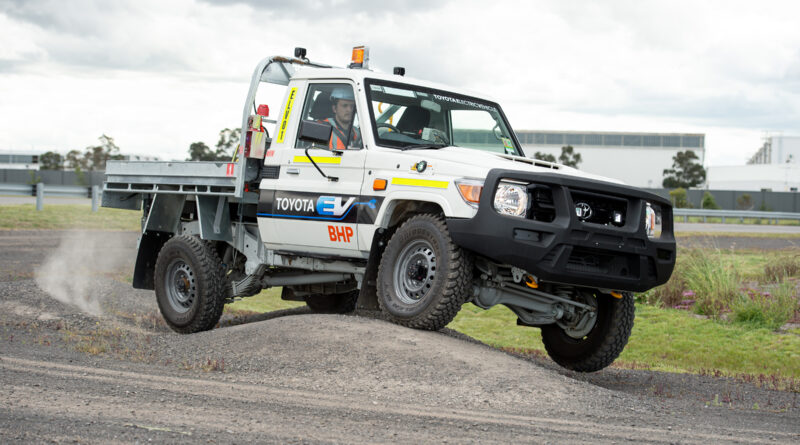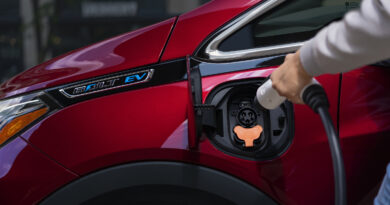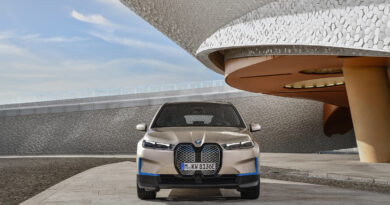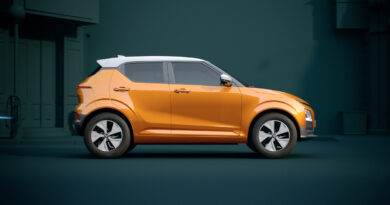Toyota’s LandCruiser 70-Series to go electric
An electric Toyota LandCruiser 70-Series is on the cards, giving the brand that sells more off-roaders than any other a full EV.
Toyota Toyota Australia is in the final stages of an extensive evaluation around a BEV version of its iconic LandCruiser 70-Series, something that has accelerated with news Toyota is trialing the technology with mining giant BHP.
UPDATE: Toyota LandCruiser 70-Series EV pilot program to expand
UPDATE: Electric Toyota LandCruiser 70-Series set for production
It means the toughest, most capable and most rugged of the LandCruiser family could soon be the softest on the environment.
Described as a “small scale trial” with BHP the full battery electric version of the iconic 70-Series LandCruiser is part of the company’s push to offer almost all cars in its range with a hybrid or electric version by 2025.
Toyota has been working on the electric LandCruiser 70-Series project since at least 2018 and a decision on its future was initially due by the end of 2020, however changing priorities surrounding Covid-19 delayed it until now.
Want the latest EV news and reviews delivered to your inbox? Subscribe to our weekly newsletter!
“BHP and Toyota have demonstrated a strong relationship throughout the last 20 years, and this project is a great testament to how we can both work together as leading companies in our respective industries to change the future,” said Toyota Australia president and CEO Matthew Callachor in announcing the electric 70-Series trial with BHP.
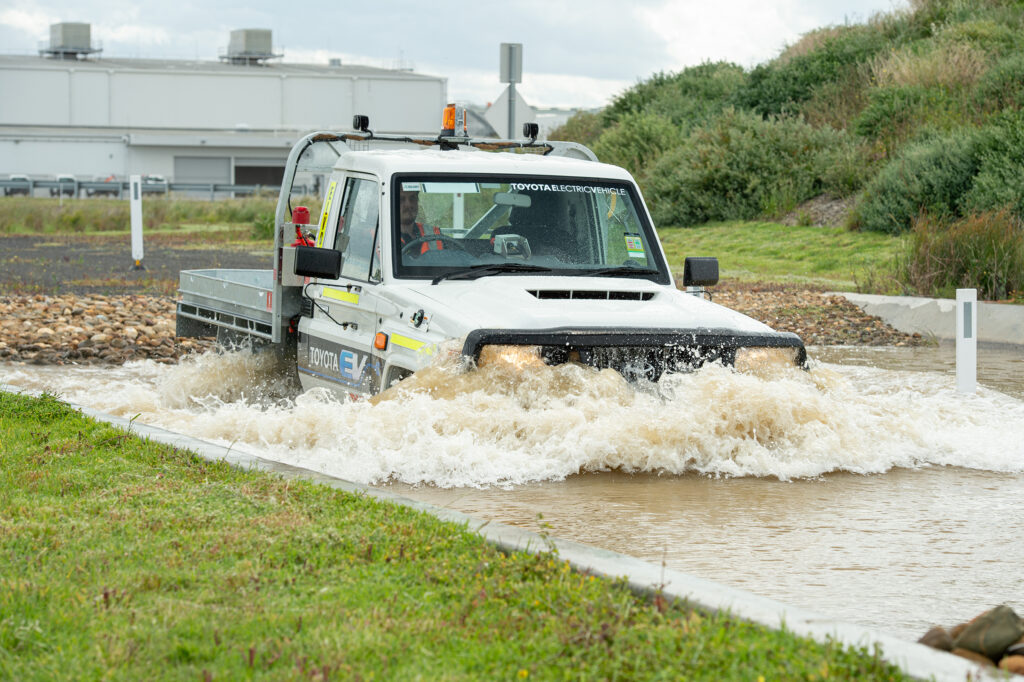
Typically used by farmers and mining companies, the 70-Series LandCruiser first went on sale in 1985 powered by a six-cylinder engine. It is currently powered by a turbo-diesel V8 engine.
Those who buy it love its reliability and suitability for Australian conditions, which includes a huge driving range courtesy of one of the largest fuel tanks in the business. The 70-Series tank capacity ranges from 130 litres to 180 litres, depending on the model.
The impetus for an EV LandCruiser 70 is coming from major mining companies in Australia, including BHP, a massive emitter of CO2. A 2018 report by the University of NSW found CO2 emissions of the six top coal producers in Australia – of which BHP is the largest – exceeded those of the rest of Australia’s domestic CO2 emissions.
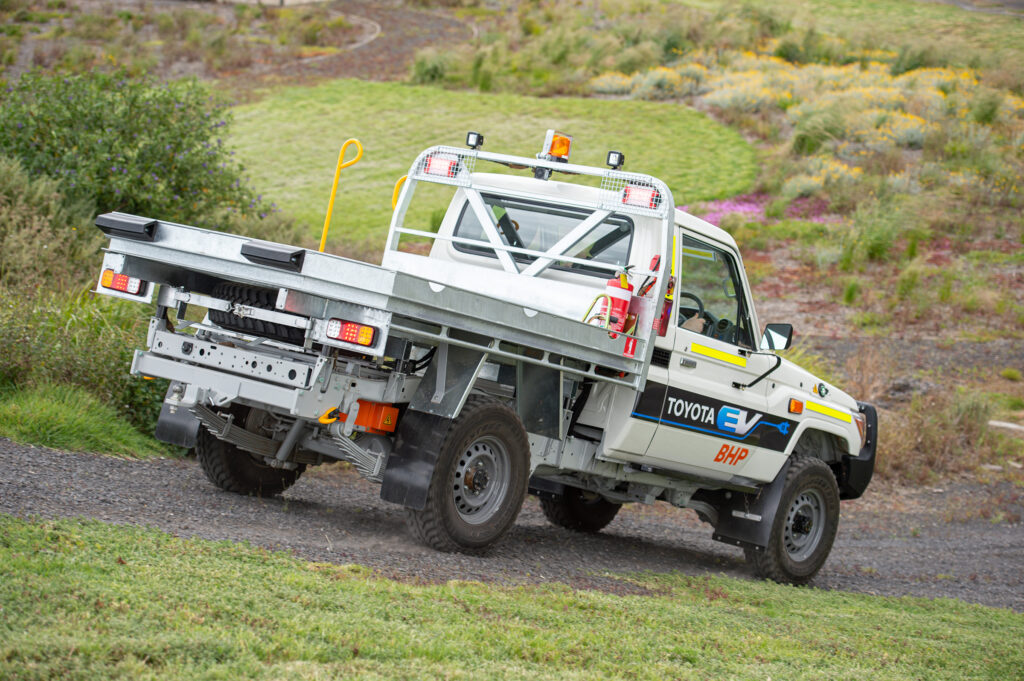
While running electric cars would have little impact on the 177 million tonnes of CO2 BHP was estimated to have emitted in 2018, it would form part of the intensive public relations push to green the image of big mining.
Clearly emissions are on the radar of mining companies, which already receive billions in diesel fuel rebates from the Australian government.
“This partnership is another step in our ongoing studies into how we can reduce the emissions intensity of our light-vehicle fleet,” said Edgar Basto, president, Minerals Australia, BHP.
“Reducing our reliance on diesel at our operations will help achieve our medium-term target of reducing operational emissions by 30 percent by 2030.”
An electric LandCruiser 70-Series also gives Toyota a crucial EV option – and, crucially, a ready-made buyer base – for its most rugged machine while still allowing it to sell diesel versions (Toyota sells around 90,000 diesel-powered vehicles each year, substantially more than any other brand).
Toyota has all but confirmed the upcoming new 300-Series LandCruiser will be available with a hybrid system, expected to team a petrol engine with an electric motor.
While on the surface it seems logical that the more utilitarian 70-Series would follow suit (the current 200-Series LandCruiser has a version of the 70’s V8 engine) it seems Toyota is thinking about key fleet sales that have been crucial to the success of the ageing model.
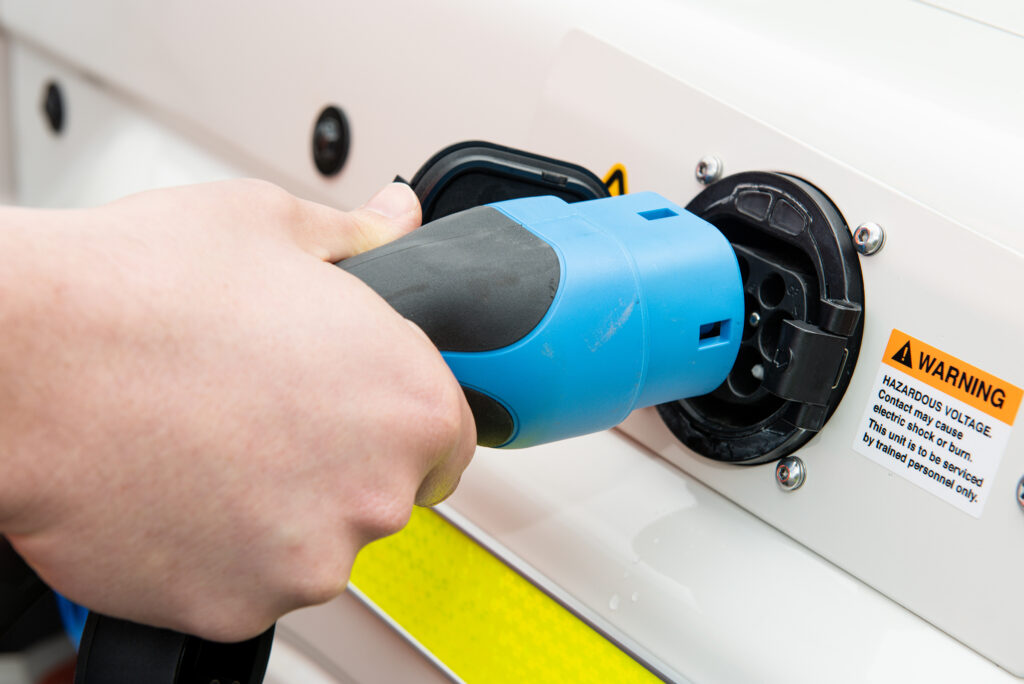
In 2016 Toyota added side curtain airbags to only one version of the four LandCruiser 70-Series body styles – the single cab ute – to earn it a five-star safety rating and put it back on the shopping lists of mining companies. That ute happens to be the version the mining companies buy, giving an indication of the sway big fleet customers can have on product planning at Toyota.
An electric LandCruiser 70-Series would almost certainly not get close to the circa-1000km driving range of the diesel models, but it wouldn’t need that for the typically shorter daily drivers that occur as part of mining work.
Fast charging at the mine sites would suffice the requirements of most.
One major consideration is what happens to the electric 70s after their life in a mine.
Currently most are snapped up second hand by young country blokes or farmers keen for an affordable workhorse.
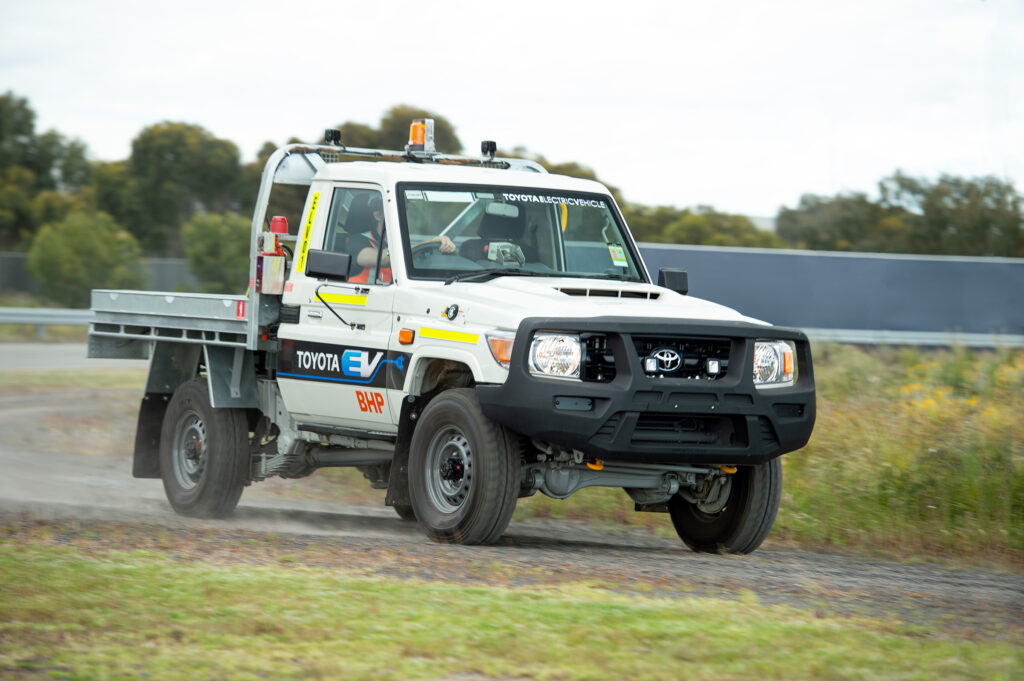
While many would likely do well under 500km a year – the expected range of modern electric cars – there is still the very real issue of range anxiety, something brought into focus when the nearest town could be hundreds of kilometres away.
Toyota Australia is also understood to be taking a keen interest in how its electric cars would be recharged in remote areas.
There is no mention in the short statement as to whether the electric LandCruiser 70-Series will be charged with clean energy during the BHP trials.
It’s understood Toyota doesn’t want diesel generators or coal used to create electricity, instead pushing for clean energy.
There are also significant engineering challenges to overcome, including ensuring the 70-Series EV lives up to its reputation as one of the most capable off-roaders on the market.
Keeping the electrics and battery free from water ingress – as part of maintaining the claimed 700mm wading capability – is also important.
Off-road brands such as Land Rover and Jeep have already said that electric off-roaders will be more capable than ICE-powered 4x4s.
EV Central understands Toyota wants to make a decision on how it electrifies the LandCruiser 70-Series over the coming months with the view to introducing it to market in coming years. While mining companies will likely be the biggest purchasers, it’s planned to be available to any who want one, including other fleet buyers.
A lot will revolve around a business case, which comes down to how many vehicles it believes it could sell.
Australia is the key market for the 70-Series globally, so to justify an all-electric model would require a big investment.
An electric 70-Series also wouldn’t necessarily roll off the factory in Japan. Toyota Australia is understood to be considering local conversions to meet what could initially be modest demand.
There are already local companies providing electric conversions of the LandCruiser 70-Series, something that triggered the interest Toyota is now pouncing on.
One such company is Adelaide-based Zero Automotive, which produces the ZED70 while another is WA-based Voltra, which manufacturers the eCruiser.

